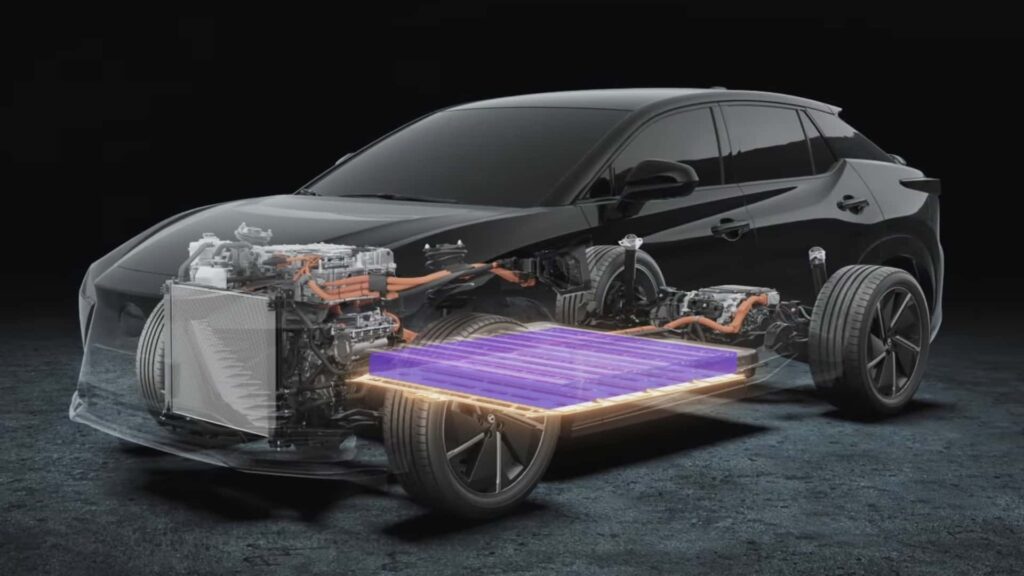Toyota recently made headlines in Europe with significant upgrades to their bZ4X and Lexus RZ crossovers, along with the introduction of the new C-HR+. However, the real story lies in the extensive hardware improvements, larger batteries, upgraded motors, and advanced technology that underpin these models.
The current Toyota bZ4X was lacking in terms of range, charging capabilities, and performance. Recognizing the need for improvement, Toyota has responded to customer feedback by enhancing their electric vehicles to better meet consumer demands.
One of the most significant upgrades is the introduction of larger and more energy-dense batteries. The bZ4X now offers a base model with a 57.7 kWh battery and a long-range version with a 73.1 kWh battery. These batteries are more efficient and have a higher cell count, resulting in improved performance and range.
While the suppliers for these batteries are not confirmed, it is likely that they will come from LG Energy Solution or Toyota’s own battery plant in North Carolina. The European-spec bZ4X is projected to achieve up to 356 miles of range on the WLTP cycle, which translates to approximately 280 miles on the EPA cycle, a significant improvement from the current models.
The new C-HR+ also features a larger battery, with options for a 57.7 kWh pack or a 77 kWh pack that offers an estimated 373 miles of range on the WLTP cycle.
In addition to battery upgrades, Toyota has improved the charging performance of their electric vehicles. While the maximum DC fast-charging rate remains at 150 kW, the charging curve has been optimized for more consistent speeds at a higher rate, reducing charging times significantly. Level 2 charging has also been enhanced, with the peak for AC charging doubled from 11 kW to 22 kW.
Other notable features include battery preconditioning, route planning, and upgraded electric motors with silicon carbide inverters for increased efficiency and power. The “eAxle” electric motor system has also been upgraded to provide better power distribution and improved handling.
These upgrades mark a significant shift for Toyota in the EV market, positioning them as a serious contender in the electric vehicle space. With their established customer base and network of dealerships, Toyota has the potential to influence the entire industry towards greater adoption of electric vehicles.
Overall, these enhancements represent a major step forward for Toyota in the electric vehicle market, showcasing their commitment to innovation and sustainability.

